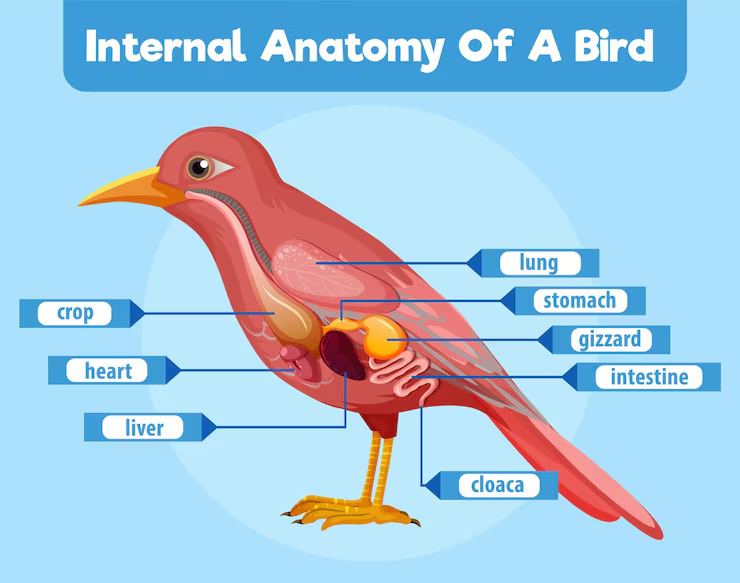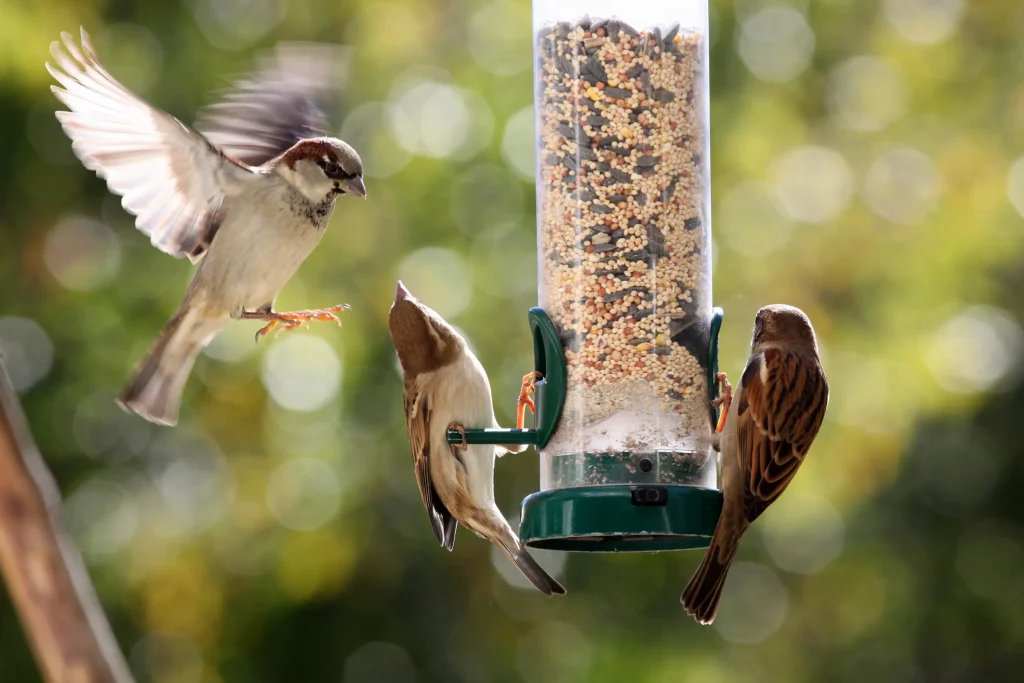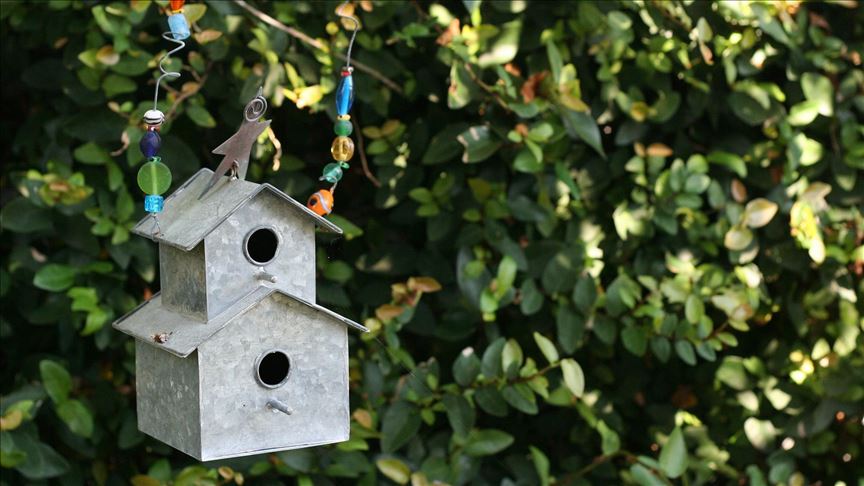Imagine waking up one morning to find your backyard filled with clucking chaos. Your beloved chickens, usually so lively and full of energy, seem listless and unwell.
You’ve heard about bird flu making the rounds, and now you’re worried it has hit your flock. What do you do next? How do you ensure your chickens bounce back to their chirpy selves without delay? We’re diving deep into the practical steps you can take to treat bird flu in chickens.
You’ll discover straightforward solutions, backed by expert advice, that can transform anxiety into action. The health of your chickens is crucial, not just for them, but also for your peace of mind. Keep reading to arm yourself with the knowledge that could make all the difference for your feathered friends.
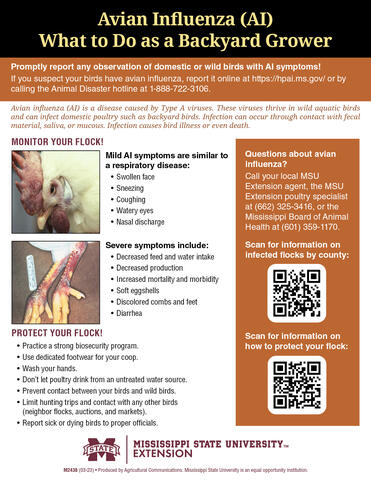
Credit: extension.msstate.edu
Symptoms Of Bird Flu In Chickens
Bird flu is a serious illness that affects chickens. It spreads quickly and can cause many problems for your flock.
Knowing the symptoms helps you spot the disease early. Quick action can protect your birds and stop the spread.
Common Signs To Watch For
Bird flu causes many signs in chickens. Look for sudden death in healthy birds. Also watch for weak or sick birds.
- Sudden death without clear reason
- Drop in egg production
- Swollen combs and wattles
- Respiratory problems like coughing or sneezing
Behavioral Changes
Chickens with bird flu act differently. They may stop eating and become very tired. They might also stay apart from the group.
Watch for these changes to catch the illness early and keep the flock safe.
- Lack of appetite
- Less movement or inactivity
- Isolation from other chickens
- Drooping wings and lowered head
Physical Symptoms
Bird flu causes clear physical signs. Check for swelling and discoloration on the face. Look for breathing trouble and watery eyes.
- Swelling around eyes, neck, and head
- Blue or purple discoloration of wattles and comb
- Difficulty breathing or gasping
- Runny nose and watery eyes
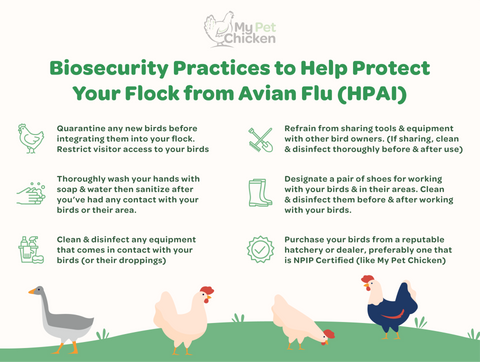
Credit: www.mypetchicken.com
Immediate Actions After Detection
Bird flu can spread quickly among chickens. Acting fast helps protect your flock and nearby farms.
Follow these important steps right after you spot signs of bird flu in your birds.
Isolate Infected Birds
Move sick chickens away from healthy ones. Use a separate area to keep them isolated.
Wear gloves and clean clothes when handling infected birds. This prevents spreading the virus.
- Use a different pen or cage for infected birds
- Limit access to the isolation area
- Dispose of dead birds safely and quickly
Notify Local Authorities
Call your local animal health office or veterinarian right away. Reporting helps control outbreaks.
Authorities may give instructions on testing and controlling the disease. Follow their guidance closely.
- Provide clear details about the symptoms
- Share information about your flock size and location
- Keep records of all sick and dead birds
Secure The Flock Area
Limit movement in and out of your chicken area. This helps stop the virus from spreading.
Clean and disinfect tools, footwear, and equipment regularly. Use proper disinfectants approved for bird flu.
- Set up footbaths at entry points
- Keep visitors away from the flock
- Remove wild birds and pests from the area
Treatment Options For Infected Chickens
Treating bird flu in chickens requires careful attention to their health. Infected birds need proper care to help them recover. This guide explains key treatment options.
Early action can reduce the impact of bird flu. Understanding the right steps helps keep your flock safe and healthy.
Supportive Care Measures
Supportive care is the first step in treatment. It focuses on keeping chickens comfortable and strong during illness.
- Provide clean water and nutritious food regularly
- Keep the environment warm and dry to reduce stress
- Isolate infected birds to prevent spreading the virus
- Ensure good ventilation without cold drafts
- Monitor chickens closely for changes in behavior or symptoms
Medication And Antibiotics
There is no specific antiviral medicine for bird flu in chickens. Antibiotics may help prevent or treat secondary bacterial infections.
| Medication Type | Purpose | Notes |
| Antibiotics | Prevent bacterial infections | Only used if bacteria are present |
| Vitamins and Electrolytes | Support immune system and hydration | Given via water or feed |
| Anti-inflammatory drugs | Reduce fever and pain | Used under veterinary advice |
Veterinary Assistance
Always contact a veterinarian when bird flu is suspected. They can confirm diagnosis and guide treatment.
Veterinarians can provide:
- Laboratory tests for accurate diagnosis
- Prescriptions for proper medications
- Advice on quarantine and biosecurity
- Recommendations for vaccination programs
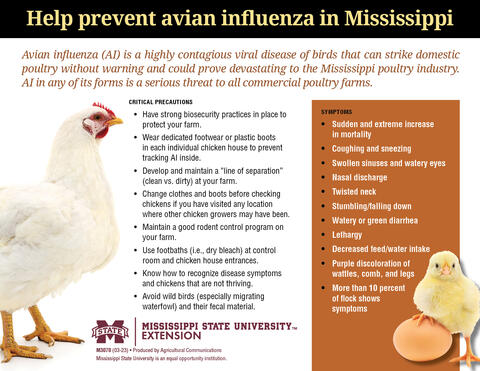
Credit: extension.msstate.edu
Preventing Spread Within The Flock
Bird flu spreads quickly among chickens. Stopping it needs careful actions. Protect your flock by following good practices.
Focus on cleaning, controlling movements, and safe disposal of dead birds. These steps reduce the risk of infection.
Sanitation And Disinfection
Clean the chicken coop and tools often. Use disinfectants that kill bird flu viruses. This stops the virus from spreading in the flock.
- Remove manure and bedding daily
- Wash feeders and waterers with soap and water
- Apply approved disinfectants on surfaces
- Dry the area well before returning chickens
Controlling Movement Of Birds And People
Limit access to the flock. Keep new birds separate for at least two weeks. Visitors should not enter the coop area.
| Control Measure | Reason |
| Quarantine new birds | Prevent hidden infections |
| Restrict visitors | Reduce virus introduction |
| Use footbaths | Disinfect shoes and boots |
| Wear clean clothes | Stop virus spread on clothing |
Proper Disposal Of Dead Birds
Dead birds can carry bird flu virus. Dispose of them quickly and safely to stop the virus from spreading.
Follow these disposal steps:
- Wear gloves and mask when handling dead birds
- Place birds in a sealed plastic bag
- Burn or bury the birds deep in the ground
- Disinfect the area and tools after disposal
Long-term Flock Management
Bird flu can harm chickens and hurt your whole flock. Long-term care helps keep chickens healthy after an outbreak.
Good management lowers the chance of bird flu coming back. It also helps chickens grow strong and live longer.
Vaccination Strategies
Vaccines protect chickens from bird flu by building their immunity. Use vaccines approved by animal health experts.
Plan a vaccination schedule for your flock. Give vaccines to all birds at the right age for best results.
- Follow vaccine instructions carefully
- Keep vaccination records for each bird
- Use booster shots if needed
- Consult vets for new vaccine options
Regular Health Monitoring
Check your chickens daily for signs of sickness. Early detection helps stop the spread of bird flu.
Look for symptoms like coughing, sneezing, or loss of appetite. Record any unusual behavior or deaths in the flock.
- Inspect birds twice a day
- Keep a health log for all chickens
- Separate sick birds immediately
- Call a vet if many birds get sick
Biosecurity Best Practices
Biosecurity means stopping diseases from entering your farm. It protects your flock from bird flu and other infections.
Limit visitors and clean equipment often. Use disinfectants and change clothes before handling chickens.
- Keep new birds separate for 2 weeks
- Use footbaths at farm entrances
- Clean water and feed containers daily
- Dispose of dead birds safely
When To Consider Culling
Culling chickens is a tough choice but sometimes needed to control bird flu. Knowing when to cull helps protect the whole flock.
This guide explains when to consider culling based on outbreak severity, ethics, and safe practices.
Assessing Severity Of The Outbreak
Check how fast the disease spreads and how many birds are sick or dead. Severe outbreaks often need culling to stop the virus.
- Number of sick birds rising quickly
- High death rate in the flock
- Virus confirmed by a vet or lab test
- Risk of spreading to nearby farms
Ethical And Practical Considerations
Culling should be done with care for animal welfare and community safety. Think about humane methods and legal rules.
| Consideration | Details |
|---|---|
| Humane Treatment | Use painless and quick methods |
| Legal Compliance | Follow local animal health laws |
| Community Impact | Inform neighbors and authorities |
| Environmental Safety | Dispose of carcasses properly |
Steps For Safe Culling
Follow clear steps to cull safely. Protect yourself and other animals from infection during the process.
- Wear protective gear like gloves and masks
- Use approved culling methods only
- Handle dead birds carefully to avoid virus spread
- Clean and disinfect all equipment and areas
- Dispose of carcasses in sealed bags or burn them
- Report the culling to local animal health officials
Frequently Asked Questions
What Are The First Steps To Treat Bird Flu In Chickens?
Isolate infected chickens immediately to prevent spread. Consult a vet for diagnosis and treatment advice. Clean and disinfect the coop thoroughly to reduce contamination.
Can Antibiotics Cure Bird Flu In Chickens?
No, antibiotics do not cure bird flu since it’s a viral infection. They may help treat secondary bacterial infections only. Veterinary guidance is essential for proper care.
How Can I Boost My Chickens’ Immunity Against Bird Flu?
Provide a balanced diet with vitamins and minerals. Keep their living area clean and stress-free. Vaccination may be available in some regions to help immunity.
When Should I Call A Vet For Bird Flu Symptoms?
Contact a vet as soon as you notice symptoms like coughing, sneezing, or sudden death. Early intervention improves management and helps protect your flock.
Conclusion
Treating bird flu in chickens requires quick and careful action. Separate sick birds from healthy ones to stop the spread. Clean and disinfect the coop regularly to keep germs away. Provide plenty of fresh water and nutritious food for recovery.
Contact a veterinarian for the right medicines and advice. Watch your flock closely for any new signs of illness. Early care helps protect your chickens and your farm. Stay calm and stay alert. Your efforts make a big difference in fighting bird flu.

